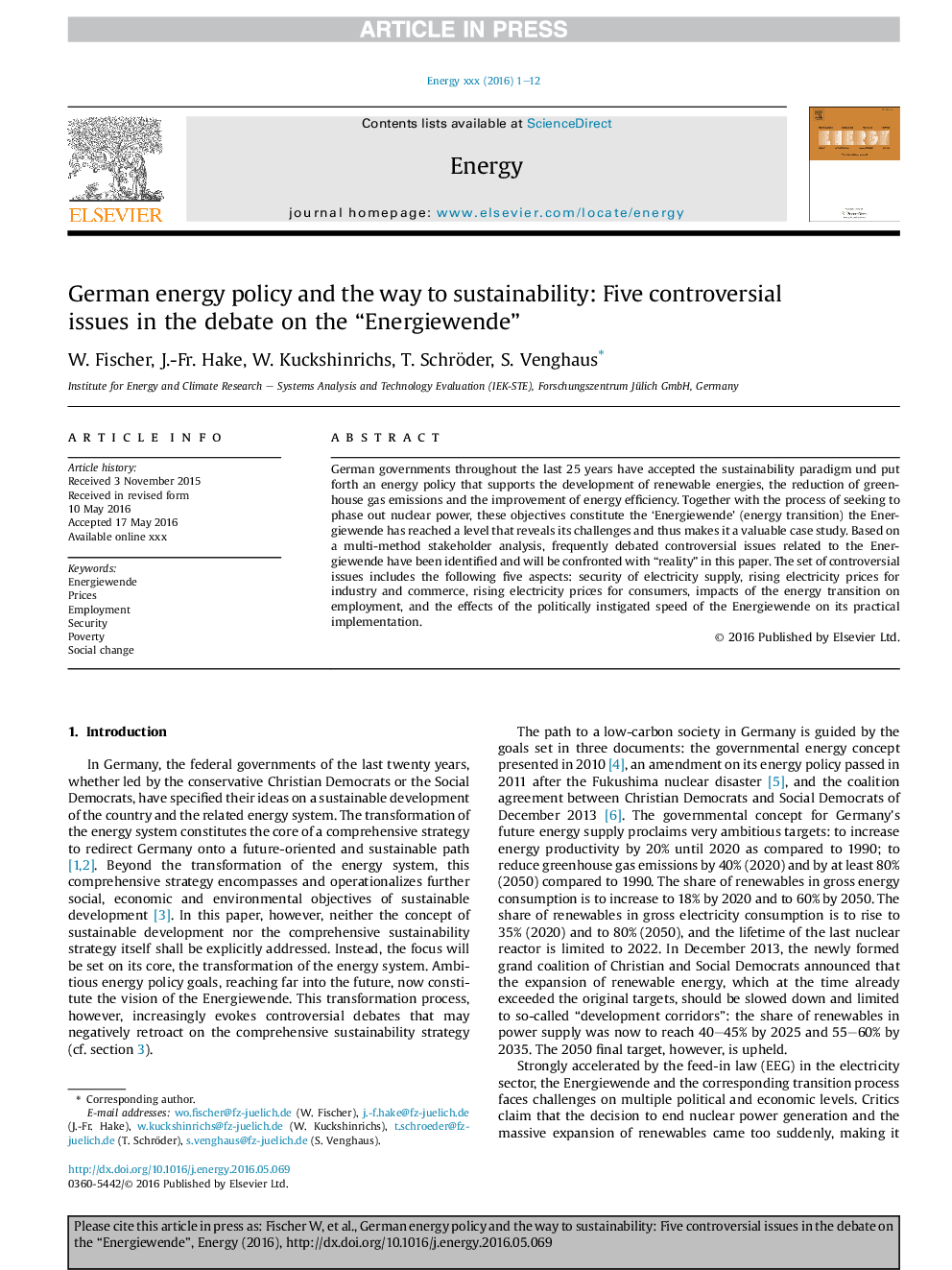| Article ID | Journal | Published Year | Pages | File Type |
|---|---|---|---|---|
| 5477243 | Energy | 2016 | 12 Pages |
Abstract
German governments throughout the last 25 years have accepted the sustainability paradigm und put forth an energy policy that supports the development of renewable energies, the reduction of greenhouse gas emissions and the improvement of energy efficiency. Together with the process of seeking to phase out nuclear power, these objectives constitute the 'Energiewende' (energy transition) the Energiewende has reached a level that reveals its challenges and thus makes it a valuable case study. Based on a multi-method stakeholder analysis, frequently debated controversial issues related to the Energiewende have been identified and will be confronted with “reality” in this paper. The set of controversial issues includes the following five aspects: security of electricity supply, rising electricity prices for industry and commerce, rising electricity prices for consumers, impacts of the energy transition on employment, and the effects of the politically instigated speed of the Energiewende on its practical implementation.
Related Topics
Physical Sciences and Engineering
Energy
Energy (General)
Authors
W. Fischer, J.-Fr. Hake, W. Kuckshinrichs, T. Schröder, S. Venghaus,
